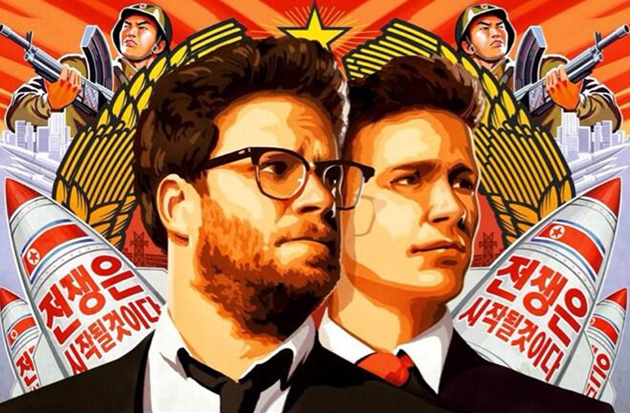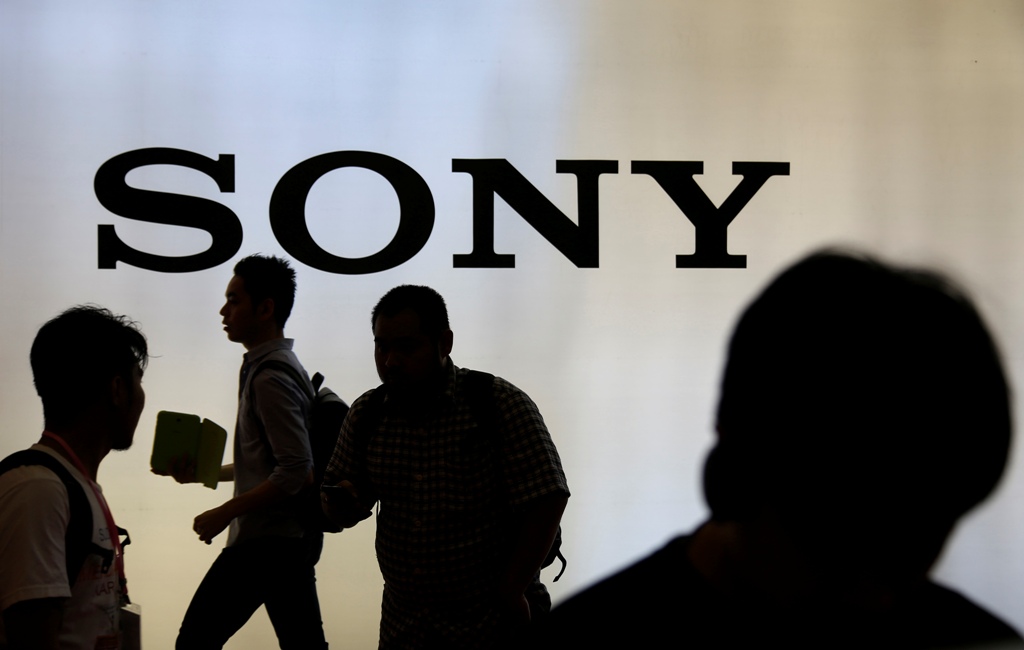The United States used the flimsiest of evidence to justify a massive attack on the rudimentary Internet servicing the Democratic People’s Republic of (North) Korea. By launching what amounts to a pre-emptive cyber-attack on North Korea, a nuclear-armed power, the Obama administration has, once again, shown that it is as apt to use force over diplomacy and bluster over reasoning.
When it comes to brandishing America’s war arsenal, whether it is traditional arms or cyber-weaponry, the Barack Obama is no different than its war-prone predecessor, George W. Bush. Even Obama’s rhetorical flourishes match those of Bush.
Responding to North Korea’s alleged hacking of Sony Pictures’ computer network over the planned Christmas Day release of a cheesy comedy called «The Interview», in which a tank shell kills North Korean leader Kim Jong Un.
Obama said the United States would respond «in a place and time and manner that we choose». Apparently, that response came in the form of a U.S. Cyber Command-led attack on the few Internet connections that North Korea maintains with the rest of the world.
Most of North Korea’s global connectivity is maintained using proxy servers in the Chinese border city of Shenyang. North Korea did not establish its first direct connectivity with the Internet until 2010.

There is every indication that the U.S. Central Intelligence Agency, as well as the U.S. State Department, working in concert with Sony Pictures’ executives, produced «The Interview» as a «soft power» operation to undermine the North Korean government.
A number of pirated DVDs make their way across the Chinese-North Korean border and into the hands of North Korean citizens who are normally barred from viewing Western movies.
The CIA and its favorite private contractor, RAND Corporation of Santa Monica, California, have recognized the «soft power» of the United States in popular culture and integrated its use in U.S. covert and overt intelligence operations.
The 2012 release on YouTube of an anti-Islamic movie «trailer» called «The Innocence of Muslims», had all the markings of a U.S. and Israeli intelligence provocation to take advantage of the already-tense street protests occurring in countries from Egypt and Libya to Yemen and Pakistan.
As a result of the information gleaned from the hacked e-mails of top Sony Pictures’ officials in Culver City, California and parent Sony Corporation in Tokyo, the culpability of U.S. policy-making and intelligence agencies in the production and planned release of «The Interview» becomes crystal clear. It is also abundantly obvious that those responsible for hacking into the Sony computers possessed information that could have only been obtained by Sony insiders or U.S. intelligence agencies. The information possessed by the «hackers» included system administrative and security administrative passwords and other privileged credentials.
There is also little evidence that the hacker group claiming responsibility for leaking a number of Sony Pictures’ files, The «Guardians of Peace», was linked to North Korea.
Sony Corporation was under tremendous pressure from the government of Japan because of very sensitive negotiations between Tokyo and Pyongyang over the return of Japanese nationals, mostly from around the city of Niigata, who were kidnapped by North Korea in the 1970s.
The delicate negotiations between Tokyo and Pyongyang centered on the number of kidnap victims who are to be repatriated to Japan. While North Korea and Japan agree that the number of kidnapped Japanese are less than 20, other reports suggest there are hundreds of such victims.
As North Korea was prepared to hand over to Tokyo a list of 883 abductees, a number that astounded the Japanese government of Prime Minister Shinzo Abe, Sony Pictures announced that it was going to release «The Interview» on December 25.
The movie, which stars the unfunny and generally arrogant Israel Defense Force fundraisers Seth Rogen and James Franco, is rife with anti-Asian stereotypes and American jingoism. When details of the movie began to leak out not from hackers but from the pages of the Hollywood Reporter and Variety, Sony and the Japanese government became worried.
The most gruesome scene from the movie shows Kim’s head being blown apart by a tank shell, spewing forth brain matter, chunks of skull, and charred hair and flesh. The two main characters, played by Rogen and Franco, are supposedly hired by the CIA to kill Kim Jong Un after they were invited to interview the North Korean leader.

According to leaked Sony e-mails, the executives at Sony headquarters were looking for ways to rein in the freewheeling management of its Culver City-based division and edit the content of a movie that was predicted to inflame North Korea’s government.
Under pressure from the Abe government to pull «The Interview», Sony executives began making their reservations known to the corporation’s Culver City-based entertainment division.
The sanctimonious U.S. corporate news media, which has its own links to Hollywood through the corporate connections of Fox News, MSNBC, and CNN to «Tinsel Town», began whining about how the U.S. fell prey to bullying from a dictator in North Korea.
The CIA climbed on the bandwagon by calling for more surveillance capabilities in cyberspace. And without any firm or even circumstantial evidence, the Federal Bureau of Investigation indicted North Korea as the source for the cyber-assault on Sony.
North Korea is the favorite cyber-bogeyman for the U.S. military-intelligence complex and it ranks with Russia and China when it comes to the creation of «cyber-enemies».

Found in the hacked Sony e-mails was an exchange between RAND Corporation’s North Korea «expert» Bruce Bennett and Sony Pictures Entertainment Chairman and CEO Michael Lynton.
Bennett said he reviewed the final scene where Kim’s head is blown apart and believed that the DVD of the movie, once smuggled into North Korea, would have an impact in North and South Korea because it might hasten the assassination of the real Kim and trigger the overthrow of the North Korean government. RAND Corporation has been and remains a major contractor for the CIA.
Bennett is RAND’s in-house North Korea consultant whose advice is sought by RAND’s paymasters at the CIA, U.S. Cyber-Command (an affiliate command of the National Security Agency), and Pentagon.

Lynton responded to Bennett, saying that the death scene of Kim was approved by a very senior official of the U.S. State Department and the U.S. special envoy for North Korean human rights issues, Ambassador Robert King. The senior official was shown by later-released Sony e-mails to Daniel Russel, the Assistant Secretary of State for East Asian and Pacific Affairs.
In June, Sony Pictures Entertainment co-chair Amy Pascal, whose own racially-tinged e-mails concerning President Obama were also revealed by «The Guardians of Peace» hackers, e-mailed Sony Pictures vice-chairman Jeff Black with an urgent order: «we need sonys [sic] name off this asap everywhere.»
Pascal urged dropping the grisly death scene of Kim that RAND and the State Department wanted to remain in the film and package a less violent version of «The Interview» for release under Sony’s Columbia Pictures subsidiary. Lynton also agreed that the death scene should go: «Yeah we cannot be cute here. What we really want is no melting face and actually not seeing him die. A look of horror as the fire approaches is probably what we need.»
It is clear that Sony executives in Japan were putting pressure on its movie division to drop the scene if not the entire movie. Kaz Hirai, the chairman of Sony in Japan, did not want the death scene of Kim. His concerns coincided with the sensitive negotiations between Japan and North Korea over the Japanese kidnapped victims.
However, it appears from the leaked e-mails that the arrogant IDF-supporting co-star, Rogen, was incensed about dropping the death scene. Rogen, a well-known supporter of Israel Defense Force atrocities in Gaza and elsewhere, even got crosswise with Sony’s top boss Hirai.
With theater chains pulling «The Interview» from its planned December 25 premiere, Rogen and Franco have stirred up their «glitterati» friends to condemn the censorship. The theater owners said they were concerned over unspecified «terrorist» threats against theaters that showed the film.
Useful idiots like George Clooney and Bill Maher have rallied to the defense of the movie. It should be pointed out that Maher’s VICE operation, part of HBO, has also penetrated North Korea, once under the guise of documenting basketball player Dennis Rodman’s trip to meet Kim.
There is no doubt that VICE, which gains access to the world’s battlefields, is yet another U.S. intelligence operation using Hollywood as a cover.
North Korea has offered to conduct a joint investigation with the United States on the Sony hacking operation. Washington rejected the offer immediately. No one in the Obama administration wants to expose the U.S. fingerprints on the propaganda film «The Interview», least of all to the DPRK.
The unprecedented denial of service attack on North Korea’s computer networks by America’s advertised «proportional response» to the attack on Sony, triggered the hacking of the computers of South Korea’s nuclear reactor operator, Korea Hydro and Nuclear Power Company (KHNP).
Just as American economic sanctions against Russia triggered a European and worldwide financial crisis, Washington’s pre-emptive cyber-attack on North Korea will have far-reaching consequences. The Obama administration, like its predecessor, has shown the world that America cannot be trusted with its favorite «toys of war».
Wayne MADSEN | SCF
http://www.strategic-culture.org/news/2014/12/23/pre-emptive-us-cyber-attack-north-korea-will-have-far-reaching-consequences.html
